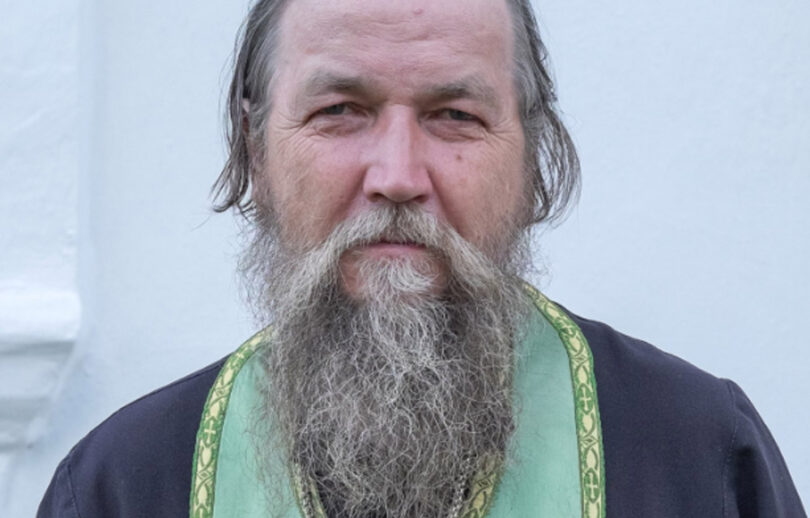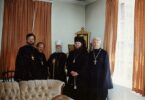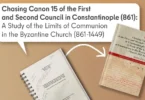Bishop Evtikhii (Kurochkin) passed away on this day one year ago.
I believe the first time I met Fr. Evtikhii was in the summer of 1990, when he came to Moscow from Siberia. In May of that year, the Council of Bishops of the Russian Orthodox Church Outside of Russia had decided to receive faithful in the Soviet Union under its omophorion. The parishes of the Russian Church Abroad there received the name of the “Free Russian Orthodox Church.” Bishop Hilarion of Manhattan, Secretary of the Synod, and Archbishop Mark of Berlin and Germany came to Moscow to serve in Suzdal and this, I believe, served as an occasion for a group of Siberian fathers to come to Moscow.
In March of 1991, after the death of Hieromonk Ignatii (Trepachko), I became editor of Pravoslavnaia Rusʹ (Archbishop Laurus was Editor-in-Chief). My interview with Fr. Evtikhii for this journal, presented in “Relevant Links” below, was the first interview I ever took. I haven’t re-read this interview since then, but the general image of Fr. Evtikhii was the one of a man of the church. He was not verbose, wore a smile, and had a gaze that was somehow mysterious. At the same time, he had a sense of humor.
In 1994, Metropolitan Vitaly presided over the episcopal consecration of Fr. Evtikhii, following the glorification of St. John of Shanghai and San Francisco in July.
The last conversation I had with him was at Lesna Convent in France in December of 1999. I remember that, at that time, when I was having doubts about whether it was right for me to move from the Moscow Patriarchate to the ROCOR, Vladyka Evtikhii told me that we should live in the present.
The 2000 jubilee Council of Bishops of the Moscow Patriarchate glorified the New Martyrs, including the Royal Martyrs, and adopted the position paper on Basics of Social Doctrine. Vladyka Evtikhii found that the following clause of the document disavowed Metropolitan Sergii’s 1927 Declaration:
“However, in the cases where the human law completely rejects the absolute divine norm, replacing it by an opposite one, it ceases to be law and becomes lawlessness, in whatever legal garments it may dress itself. For instance, the Decalogue clearly states: ‘Honour thy father and thy mother’ (Ex. 20:12). Any secular norm that contradicts this commandment indicts not its offender but the legislator himself. In other words, the human law has never contained the divine law in its fullness, but in order to remain law it is obliged to conform to the God-established principles, rather than to erode them.” (IV.3)
The first hierarch of the ROCOR was still Metropolitan Vitaly (Ustinov), who did not fancy dialogue with the Moscow Patriarchate. It might have been natural for Bishop Evtikhii to oppose reconciliation with the Moscow Patriarchate, since he left it for the ROCOR. The fact that Bishop Evtikhii was open to assess the things on their own merits proves a point that I made earlier, that he was a man of the Church, who followed the words of the Psalm writer: “Not to us, O Lord, not to us; but to Thy name give glory.” (DRA, 113:9).
After the reconciliation in 2007, Bishop Evtikhii became a vicar bishop of Patriarch Alexis. He retired and continued to live in his native town of Ishim in Siberia.
The interview below gives an insight into the work of our internet hub, ROCOR Studies. Ilya Savelʹev from Herkimer, NY, converted the audio from tape to digital format, Vasilissa in Russia merged the audio files and posted them online, and John Kurr in Jordanville converted the interview from paper to electronic format. Then Hierom. Alexei (Lisenko) in Chicago translated it into English. All of this was with assistance from Walker Thompson from Germany and Olga from Russia.
Relevant Link:
Hegumen Evtikhii, “I Beg of You to Perform a Good Deed for the Sake of us Sinners,” Historical Studies of the Russian Church Abroad.











